Tired of feeling tired?
Do you struggle to make it through the day without a nap or a caffeine fix?
You're not alone.
Millions of people struggle with sustaining energy throughout the day, but the good news is that it doesn't have to be this way.
Without enough energy, you can experience a range of physical and mental symptoms, from fatigue and lethargy to difficulty concentrating and mood swings.
This can have a significant impact on your ability to perform at work or school, maintain healthy relationships, and enjoy your hobbies and activities.
One of the biggest problems associated with not having enough energy throughout the day is the impact on your productivity. When you're constantly feeling tired and drained, it's difficult to stay focused and motivated, leading to decreased productivity and performance.
Lack of energy can also impact your mental health, as it can lead to increased stress and anxiety. When you're feeling overwhelmed and unable to keep up, it can be difficult to maintain a positive outlook and manage your emotions.
In addition to these mental and emotional challenges, not having enough energy can also impact your physical health. Fatigue can make it difficult to exercise or engage in physical activities, leading to decreased muscle tone and weight gain. It can also impact your immune system, making you more susceptible to illness and disease.
The good news is that there are solutions to these energy-related challenges.
By making changes to your diet, exercise routine, and sleep habits, you can improve your energy levels and overcome the challenges associated with fatigue and lethargy.
What the Research Says
Keeping energy levels up all day can be difficult, but research continues to reveal how and why you feel tired and depleted.
Lack of sleep, a bad diet, inactivity, stress, vitamin and mineral deficiencies, mental fatigue, and even what and how you eat can all zap your energy.
According to research, about one in three adults in the United States is sleep-deprived, causing daytime drowsiness and decreased alertness. This lack of energy is not only detrimental to our work performance but also impacts our overall quality of life.
Additionally, sedentary lifestyles are adding to fatigue and low energy.1 In the United States, only one in every five adults and one in every five high school students meets the physical activity guidelines. This contributes to one in ten early deaths, more disease, unhealthy aging, and more sick days from work.
Stress is another major factor that can cause energy depletion. Research into its effects continue to reveal how unhealthy it can be. Not only does stress contribute to developing conditions, like high blood pressure and heart disease, but it may also contribute to weight gain and poor body composition. It can also contribute to anxiety and depression, which can worsen feelings of fatigue and low energy.
When it comes to our physical and mental health, vitamins and minerals are essential for providing us with the energy we need. Research has shown that people who don't get enough of certain vitamins and minerals often suffer from fatigue. Even though severe deficiencies are rare these days, there is some evidence to suggest that slight deficiencies may have a negative impact on physical and mental energy levels.
Additionally, the effect of mental fatigue on energy levels is worth considering. It is believed that mental strain and exhaustion can affect energy levels. Some researchers suggest this happens because people's perception of effort increases, while other measures such as accuracy, strategy decisions, or reaction time may be affected by too much psychological fatigue. Ultimately, excessive mental demands impact energy levels and this has been linked with a decrease in performance or an increased risk of accidents.
Lastly, chrono-nutrition is a recently established field of research. It considers when we eat, what type of food we consume, how often we have meals, and the length of time for each meal. Research from both humans and animals has shown that when it comes to consuming food during the day, it can make a significant difference to our overall wellbeing. Indeed, it is now clear that when the body’s normal rhythms and timing of meals is disrupted, it contributes to poor health and an imbalance in energy.
Practical and Simple Solutions
Maintaining energy levels throughout the day can be achieved by incorporating simple and practical solutions into your daily routine.
Here are some evidence-based strategies to help you.
Prioritize sleep: Ensure you get adequate sleep by creating a consistent sleep schedule and optimizing your sleep environment for restful slumber.
Eat a balanced breakfast: Start your day with a nutritious breakfast that includes a mix of protein, healthy fats, and complex carbohydrates to boost cognitive performance and mood.
Stay hydrated: Drink sufficient water throughout the day to prevent dehydration-induced fatigue and reduced alertness.
Engage in regular physical activity: Incorporate moderate-to-vigorous intensity exercise into your daily routine to boost energy levels and reduce fatigue. Research also suggests that physical activity can boost your immune system.
Practice stress management: Implement mindfulness techniques, such as meditation and yoga, to reduce stress and improve overall well-being.
Moderate caffeine consumption: Limit caffeine intake to low or moderate levels to enhance cognitive function and alertness without causing negative side effects.
Manage mental fatigue: Incorporate strategies such as taking frequent breaks and spending time in natural environments to minimize mental fatigue and maintain energy levels.
Follow a regular meal pattern: Establish a consistent meal schedule with balanced macronutrient distribution to support sustained energy levels and improved metabolic health.
Ensure you are getting enough essential amino acids (EAAs) in your diet: Include a variety of essential amino acids in your diet, either through food sources or supplementation, to support energy levels.
How Essential Amino Acids Support All-Day Sustained Energy
Essential amino acids play a crucial role in all-day sustained energy. They are the building blocks of proteins, which are vital components of every cell in the body.
There are nine EAAs that our bodies can’t make. Instead, these EAAs need to be consumed through what we eat and drink. These EAAs are histidine, isoleucine, leucine, lysine, methionine, phenylalanine, threonine, tryptophan, and valine.
EAAs naturally boost energy, without caffeine or other stimulants. They do this in several ways.
First, they are involved in developing new mitochondria, the powerhouses of the cell, and support the quality of existing mitochondria for improved overall energy production.
As well, EAAs assure efficient energy production. In turn, this helps mitochondria maintain energy levels all day.
Second, EAAs play a role in regulating energy balance through different metabolic pathways. Some amino acids can be turned into a sugar, glucose, that can provide an alternative energy source when needed. This process also helps keep blood sugar levels stable.
Essential amino acids can also provide energy in the form of fatty acids or ketone bodies. This helps prevent energy crashes.
Third, EAAs, particularly leucine, are known to stimulate muscle protein synthesis, which is crucial for maintaining muscle mass and function. Preserving muscle mass is important for overall energy levels, as muscles play a key role in movement and metabolism.
Fourth, EAAs, such as tryptophan, are needed to make chemicals in our brains, called neurotransmitters. Some of these neurotransmitters help control mood, sleep, and energy levels. Tryptophan, specifically, is used to make to serotonin, a neurotransmitter that plays a role in sleep and mood, both of which can affect energy levels.
Essential Amino Acid Supplements
Essential amino acid supplements like Kion Aminos are an optimal solution for all-day sustained energy, as they provide a balanced blend of all nine EAAs required by the body for functions like energy production, muscle maintenance, and making neurotransmitters.
One significant advantage of Kion Aminos is its fast absorption rate.
Kion Aminos is extremely digestible because the EAAs it contains are rapidly absorbed into the bloodstream versus protein from food needs to be broken down and digested much more slowly.
This quick uptake ensures that the body can immediately utilize the EAAs for energy production and other vital functions, contributing to all-day sustained energy.
In addition, Kion Aminos is a versatile supplement, available in both powder and capsule form. This flexibility allows you to easily incorporate it into their daily routine, either by mixing the powder with water or juice, or by taking the capsule as a convenient on-the-go option.
Kion Aminos is made with natural flavors, is sugar-free, and contains no caffeine, artificial sweeteners, stearates, coatings, dyes. This means that it won’t negatively impact your gut health or give you the nervous energy and jitters that other supplements can cause.
Sourced from plant-based ingredients, Kion Aminos is suitable for anyone with various dietary preferences and restrictions, ensuring that everyone can benefit from its energy-enhancing properties.
Conclusion
All-day sustained energy is a crucial aspect of maintaining overall well-being and productivity.
Through understanding the various factors that influence energy levels, including sleep, nutrition, hydration, physical activity, stress management, micronutrient intake, caffeine consumption, mental fatigue, meal timing, and EAAs, you can implement evidence-based strategies to optimize their energy levels throughout the day.
As a high-quality and fast-absorbing source of EAAs, Kion Aminos offers an optimal solution to support all-day sustained energy.
By incorporating these practical solutions into daily routines, you can experience improved energy levels, enhanced productivity, and better overall health.
Kion Aminos
Natural, caffeine-free energy
Buy Now
Scientific Research
- Adolphus K, Lawton CL, Champ CL, Dye L. The Effects of Breakfast and Breakfast Composition on Cognition in Children and Adolescents: A Systematic Review. Adv Nutr. 2016;7(3):590S-612S.
- American Academy of Sleep Medicine. Prioritizing sleep and managing fatigue. 2021. https://aasm.org/wp-content/uploads/2021/05/Prioritizing-Sleep-and-Managing-Fatigue.pdf. Accessed April 3, 2023.
- Benton D, Young HA. Do small differences in hydration status affect mood and mental performance?. Nutr Rev. 2015;73 Suppl 2:83-96.
- Besedovsky L, Lange T, Haack M. The Sleep-Immune Crosstalk in Health and Disease. Physiol Rev. 2019;99(3):1325-1380.
- Centers for Disease Control and Prevention. Active People, Healthy Nation At a Glance. https://www.cdc.gov/physicalactivity/downloads/Active_People_Healthy_Nation_at-a-glance_082018_508.pdf. Accessed April 3, 2023.
- Centers for Disease Control and Prevention. Health benefits of physical activity for adults. https://www.cdc.gov/physicalactivity/basics/adults/health-benefits-of-physical-activity-for-adults.html. Accessed April 3, 2023.
- Centers for Disease Control and Prevention. Physical activity guidelines for Americans. 2nd edition. https://health.gov/sites/default/files/2019-09/Physical_Activity_Guidelines_2nd_edition.pdf#page=32. Accessed April 3, 2023.
- Chourpiliadis C, Mohiuddin SS. Biochemistry, Gluconeogenesis. [Updated 2022 Jun 6]. In: StatPearls [Internet]. Treasure Island (FL): StatPearls Publishing; 2023 Jan-. https://www.ncbi.nlm.nih.gov/books/NBK544346/. Accessed April 3, 2023.
- Creswell JD, Lindsay EK, Villalba DK, Chin B. Mindfulness Training and Physical Health: Mechanisms and Outcomes. Psychosom Med. 2019;81(3):224-232.
- Dalangin R, Kim A, Campbell RE. The Role of amino acids in neurotransmission and fluorescent tools for their detection. Int J Mol Sci. 2020;21(17):6197.
- Díaz-García J, González-Ponce I, Ponce-Bordón JC, et al. Mental Load and Fatigue Assessment Instruments: A Systematic Review. Int J Environ Res Public Health. 2021;19(1):419.
- Füzéki E, Engeroff T, Banzer W. Health Benefits of Light-Intensity Physical Activity: A Systematic Review of Accelerometer Data of the National Health and Nutrition Examination Survey (NHANES). Sports Med. 2017;47(9):1769-1793.
- Galioto R, Spitznagel MB. The Effects of Breakfast and Breakfast Composition on Cognition in Adults. Adv Nutr. 2016;7(3):576S-89S.
- Harvard Health Publishing. Understanding the stress response. July 6, 2020. https://www.health.harvard.edu/staying-healthy/understanding-the-stress-response. Accessed April 3, 2023.
- Harvard T.H. Chan. School of Public Health. The nutrition source. Coffee. https://www.hsph.harvard.edu/nutritionsource/food-features/coffee/. Accessed April 4, 2023.
- Hormoznejad R, Javid AZ, Mansoori A. Effect of BCAA supplementat
* These statements have not been evaluated by the Food and Drug Administration. This product is not intended to diagnose, treat, cure, or prevent any disease.
© 2022 Kion. All rights reserved.



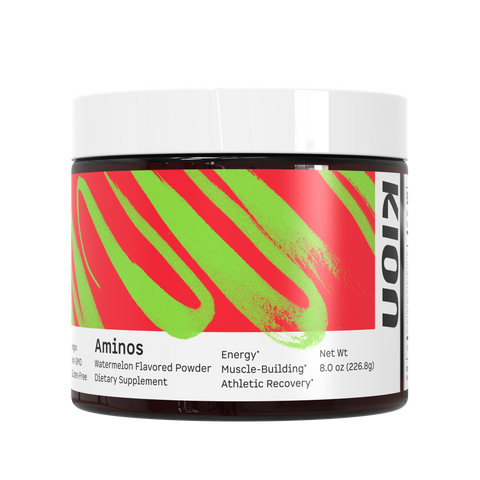
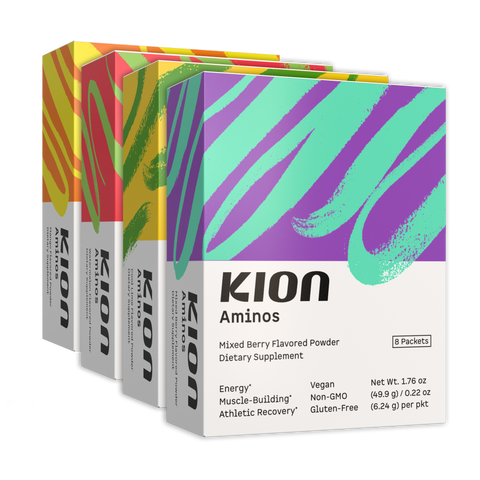
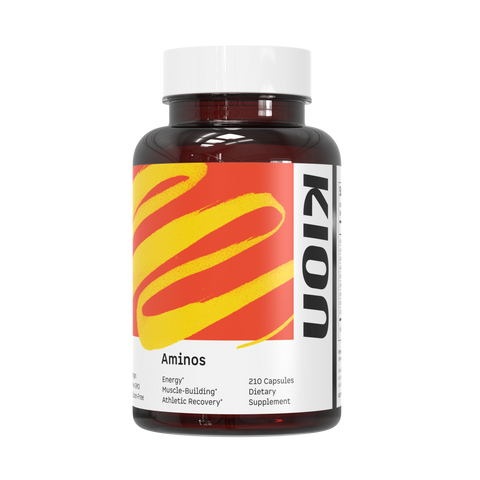
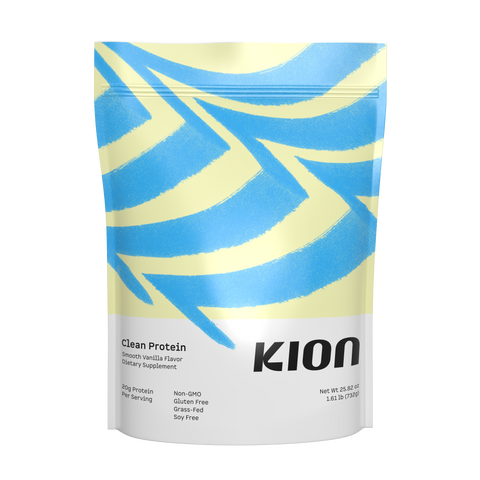
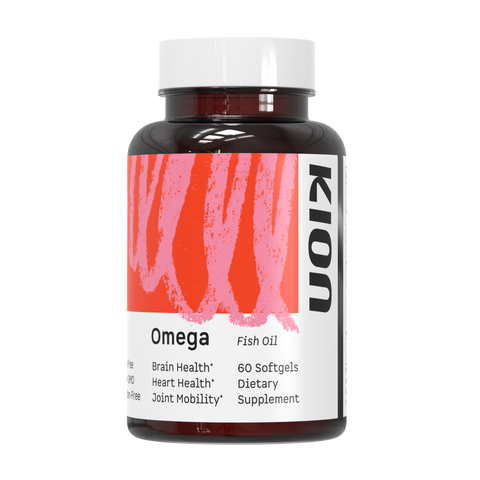
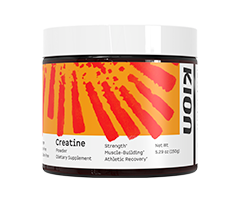

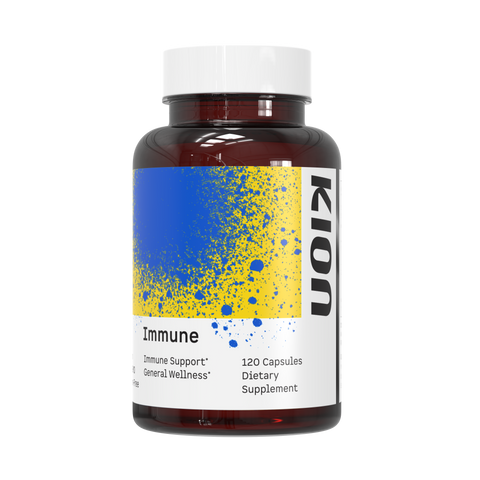
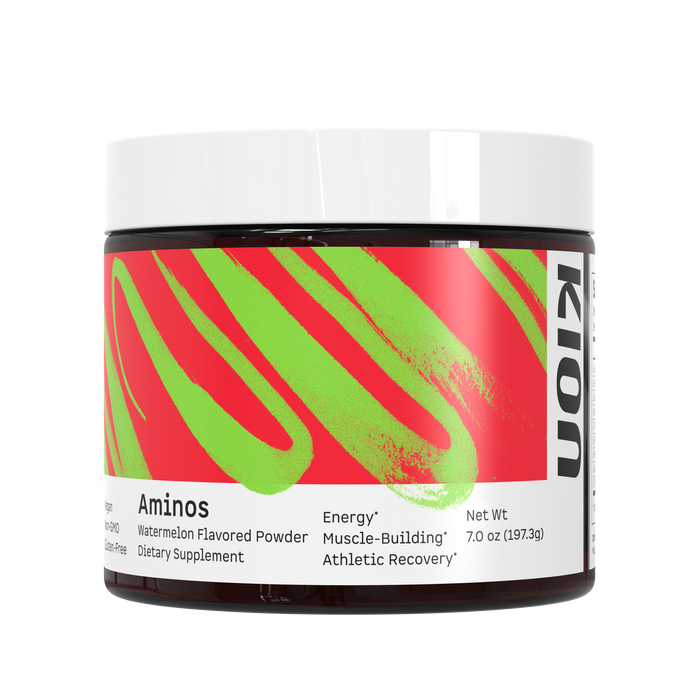




Comments
I really love the taste. I am feeling great with lots of super nice energy. I enjoy the info that send to me. Thanks
Suzi
Suzi on
Great article! I’ve been recently learning about the importance of EAAs, and this was a good reminder to check in with my protein consumption.
Jake on